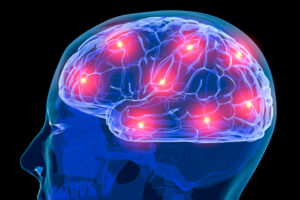Neurology
Epilepsy
Public Awareness of and Misconceptions About Epilepsy
Overview
Although the stigma of epilepsy has been reduced over the years, misconceptions about the disease remain. Even today, there is a general undercurrent that people with epilepsy will have poor achievement or a reduced intellectual capacity, or that they are generally unfit in some other way.
Expert Commentary
James W. Wheless, BScPharm, MD, FAAP, FACP, FAAN, FAES
|
|
“I think that a strong, well-known advocate could help to promote awareness and dispel some common misconceptions about epilepsy. We do not really have a celebrity spokesperson such as Michael J. Fox, who has done so much to spread awareness of Parkinson’s disease.”
Since the 1960s, various surveys of the public, such as those conducted by Gallup, have shown improvements regarding the stigmatization of epilepsy over the past decades. Nonetheless, public awareness of and misconceptions about the disease remain widespread issues for clinicians and patients. A 2016 review of 81 international publications published between 2004 and 2015 found myriad reports of misconceptions about epilepsy among the general public in Europe, the Americas, and Australia. These included beliefs that patients with epilepsy cannot have normal social relationships, cannot succeed professionally or be effective employees, and have poor intelligence/cognitive abilities, as well as beliefs that children of people with epilepsy almost always have learning or mental problems. The stigma surrounding epilepsy is greater than that of virtually any other neurologic disorder, including multiple sclerosis and Parkinson’s disease. In some parts of the world, people living with epilepsy experience more stigma than those living with HIV/AIDS. All different age groups are affected. For instance, parents who become aware of a neighboring child who suffers from seizures may hesitate to let their children socialize with them.
Various interventions have sought to address these stigmas, and the Centers for Disease Control and Prevention has even been involved. While somewhat effective, these interventions tend to be time intensive and impractical for broad implementation. There has been a hope that social media could be used to reduce the stigma, but that avenue thus far has been a bit of a disappointment.
Changing adult biases and beliefs is exceptionally difficult; one potential solution is to begin educating people about epilepsy during the early school years. I think that a strong, well-known advocate could help to promote awareness and dispel some common misconceptions about epilepsy. We do not really have a celebrity spokesperson such as Michael J. Fox, who has done so much to spread awareness of Parkinson’s disease. Further, public service campaigns could help to send the message that epilepsy is just another neurologic disorder; it cannot be “caught” like a cold or measles and people with epilepsy can function just as well as anyone else in society and in the workplace. Online resources can also be effective. As physicians who treat epilepsy, an important aspect of our job is directing patients and families to credible websites that contain information that they can use when talking with friends, teachers, and family members.
References
Adjei P, Nkromah K, Akpalu A, et al. A cross-sectional comparative study of perceived stigma between patients with epilepsy and patients living with HIV/AIDS in Accra, Ghana. Epilepsy Behav. 2018;89:1-7.
Centers for Disease Control and Prevention. Epilepsy. https://www.cdc.gov/epilepsy/publications/articles/index.htm#Knowledge,%20Attitudes%20%26%20Stigma. Accessed February 6, 2020.
Herrmann LK, Welter E, Berg AT, Perzynski AT, Van Doren JR, Sajatovic M. Epilepsy misconceptions and stigma reduction: current status in Western countries. Epilepsy Behav. 2016;60:165-173.
Meng Y, Elkaim L, Wang J, et al. Social media in epilepsy: a quantitative and qualitative analysis. Epilepsy Behav. 2017;71(pt A):79-84.
Sajatovic M, Herrmann LK, Van Doren JR, et al. A randomized prospective pilot trial of Web-delivered epilepsy stigma reduction communications in young adults. Epilepsia. 2017;58(11):1946-1954.
Stafstrom CE. Using artwork to understand and address the psychosocial challenges facing children and adolescents with epilepsy. Epilepsy Behav. 2019;101(pt A):106572.











